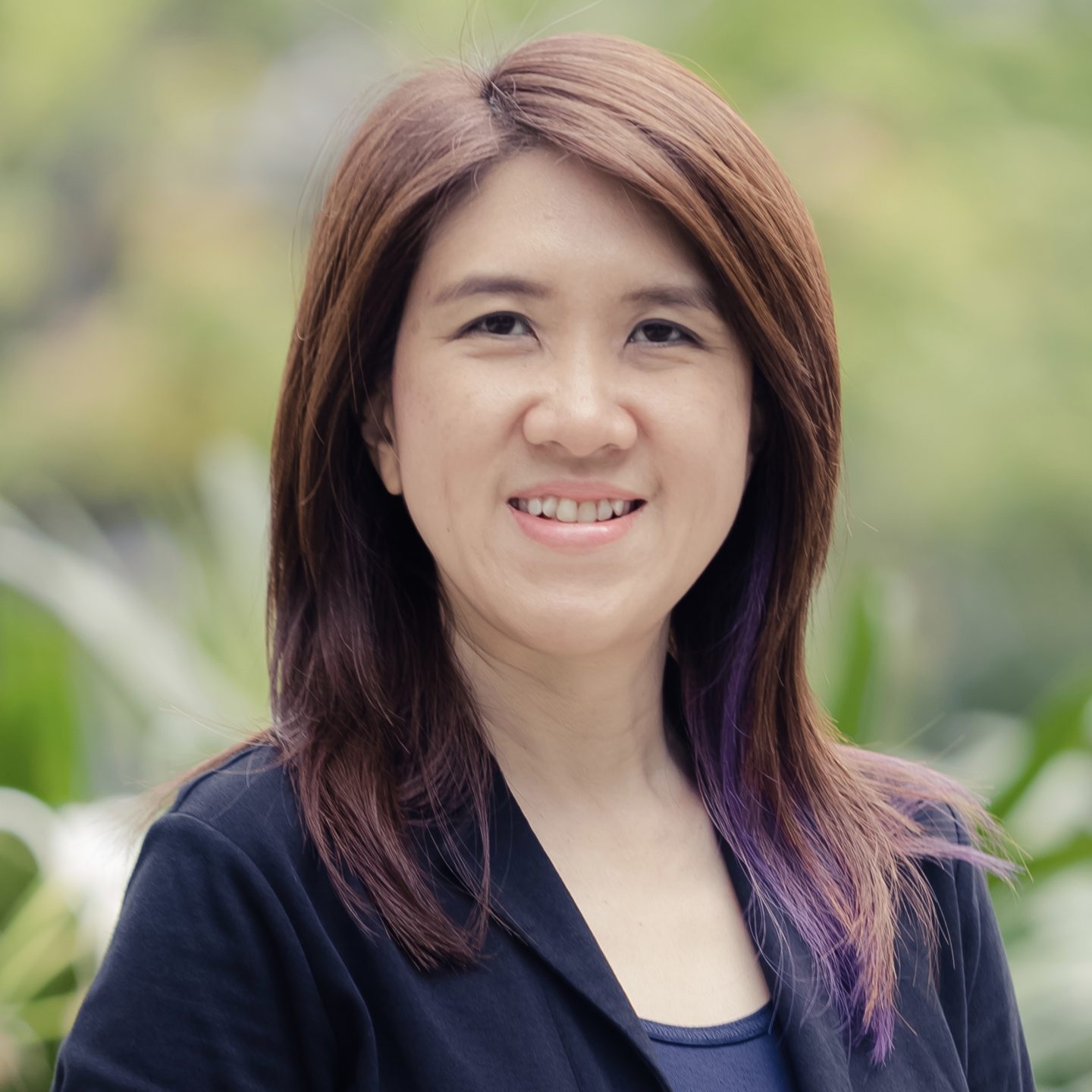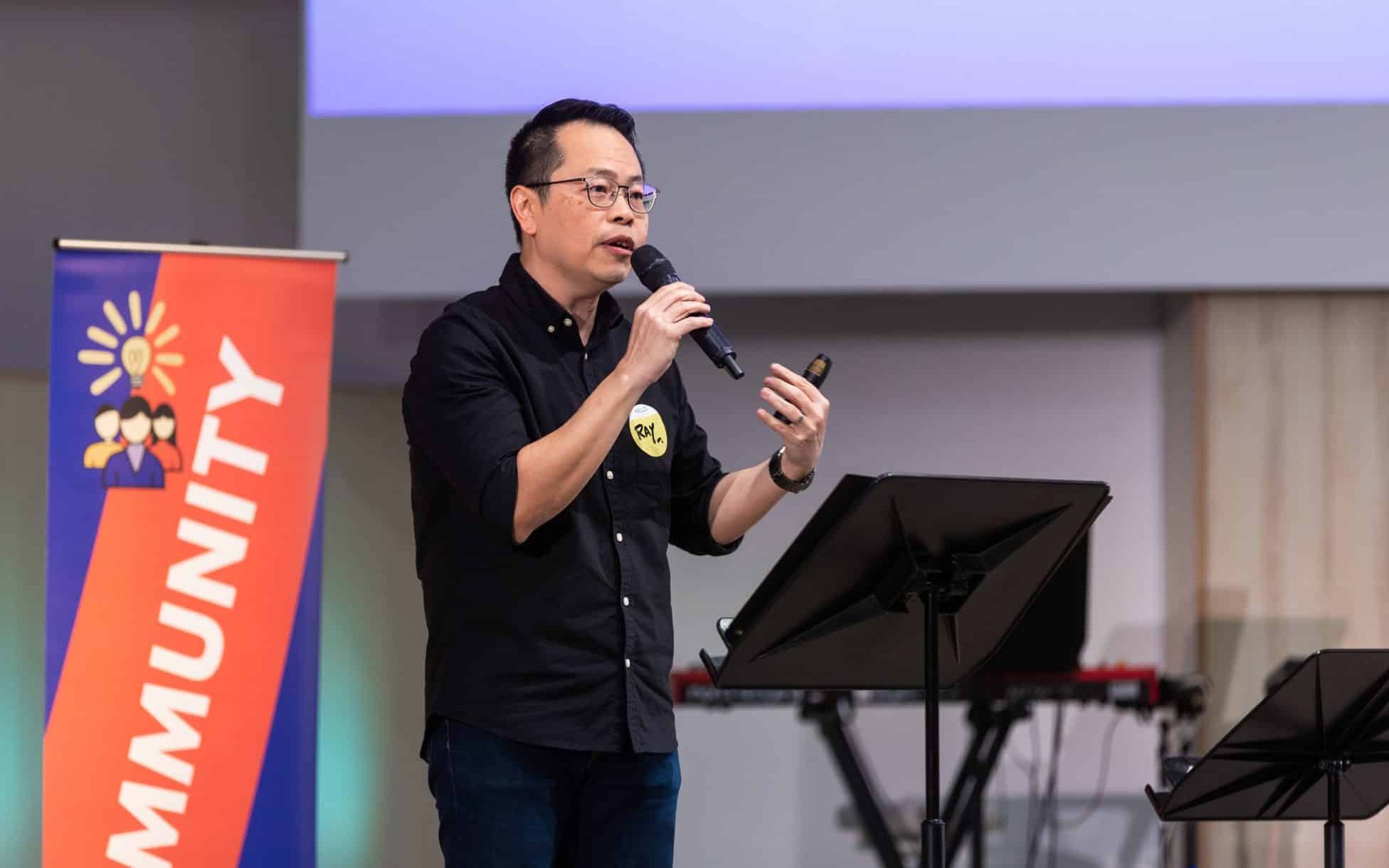What is truth and how to tell when something is true: D6 Family Night
by Christine Leow // February 7, 2025, 4:11 pm

At the recent D6 Family Night, the importance of objective truth was discussed. Photo from Depositphotos.com.
It was the usual morning rush to school. The children were taking their time and Elvin Foong was getting increasingly frustrated.
“You guys tell me you want to get to school early, on time and then you’re not moving at a fast enough pace.”
In the car, his son and daughter said their usual prayer, a habit the Foong family had developed over the years.
“Our bad theology often begins with very good intentions.”
“They said, ‘Dear God, we pray that You give us a smooth and a fast journey to school. I pray that there will be no accidents, all the traffic lights will turn green when we approach them and we’ll be able to get to school on time.’
“I remember being so upset that day that I said, ‘Do you really think God will hear or answer your prayer when you didn’t even do your best to move faster in the morning?’”
Elvin’s intention was to “teach them to take personal responsibility”. But he later realised that he may have inadvertently taught them “very bad theology”.
“I was teaching them that God is a God who will only hear your prayer if you live the perfect life.

Elvin Foong (in red) with his wife Esther and their children. Photo courtesy of the Foongs.
“Our bad theology often begins with very good intentions because it’s often related to trying to get our children to behave better. We want them to do better. And somehow we use God as a trump card.”
A father of a teen son and a tween daughter, Elvin shared this story during a D6 Family Night Zoom conference. D6 is a movement intentional about empowering parents, homes, marriages, leaders and churches to live out the story of Deuteronomy 6 that paints a beautiful picture of God’s heart for discipleship at home.
Sharing alongside Elvin, who runs Christian resources and services provider The Treasure Box SG with his wife Esther, was Carol Loi.
Carol has two young adult daughters and is the International Director of Generations of Virtue, as well as a digital literacy educator, and a leadership and family coach.
Some 150 participants logged in to listen to them discuss, “What is truth?”, facilitated by lawyer Jonathan Cho, a father to two young children.
Below are key points raised during the Zoom conference.
What is truth?
The Bible and truth
As believers, we say the Bible – the Word of God – is the truth, said Carol. After all, Jesus is the Living Word and He said: “I am the way and the truth and the life.” (John 14:6)
But what happens when you are talking to someone who does not believe in the Bible or who might be “shaky about their faith in God”? How then do you explain what is truth?
Truth is universal
“I don’t think truth is something that only Christians can understand,” said Elvin.
“It is present in the universe, in the fabric of Nature, in how mathematics works. When we approach truth like that and realise that objective truth does exist and is readily available for anybody who is looking for it, then it’s not exclusive to Christians.”
Feelings vs truth
For many people, truth is that which they experience.
Said Carol: “There are a lot of people who say, ‘Your truth is your truth, my truth is my truth.’
“Why? Because what I experience is real. Surely truth is what is real. So what I feel is reality to me. If you are not feeling what I’m feeling, then don’t tell me that that is not true.”

Carol Loi is a champion of families and digital literacy.
But feelings and truth are separate, maintained Carol. Just because you feel something does not make it a fact.
“There are now people interpreting the Bible the way that they feel is true, picking out verses to justify their way of seeing the world when is should actually be that we interpret the world the way Scripture is telling us to interpret.”
The world’s encouragement to “follow your heart” and “be your authentic self” further confuses people because such pronouncements do not consider our sinful nature. Following our hearts may simply be us following sinful flesh.
Post-modernism and truth
The truth is that there is no truth. This is post-modernism. But if there is no truth, then even this statement cannot be true.
At the heart of this is moral relativism, where there is no benchmark, said Carol.
“Once we remove God from the picture, there isn’t a central benchmark of what is right and wrong, or what is called morality.
“Who is to say that we cannot kill a life in the womb? Who is to say that when, if somebody feels highly stressed, that they cannot harm themselves.
“If there’s no objective right and wrong, who are we to have concern?”
How do we know what is truth?
1. Know Scripture
Bible literacy will help us know what is the truth, said Elvin. But biblical literacy goes beyond merely reading the Bible.
“Reading is different from reading and understanding, and reading and understanding is also different from reading and understanding the Bible in its context and knowing exactly what the text is actually trying to say,” he pointed out.
Philippians 4:13 is often quoted as a blanket promise that God will help us to do anything.
“A lot of times we have no time to read the Bible. So let’s just do verse of the day. Let’s just read a particular passage, or let’s just jump straight to the Bible app and see what they have.
“If we only read the Bible piecemeal like that, it could lead to inaccurate understandings of the Bible, which we then obviously pass on to our children,” said Elvin.
He went on to share about the importance reading Bible passages in their context. Philippians 4:13 – I can do all things through Him who gives me strength – is often quoted as a blanket promise that God will help us to do anything.
Said Elvin: “If you read it in the context of the text itself, it’s not about the ability to do superhuman things or anything at all, but it’s really about Paul talking about being content in Christ even when things aren’t going well.”
2. Know God
Read the Bible not just to look for answers or comfort in times of need. Read the Bible to know God.
“The Bible primarily is about who God is. It’s a means God has chosen to reveal Himself to us,” said Elvin.
Added Carol: “Reading Scripture must be for our understanding of God’s nature, God’s character, God’s design of our world.”
3. Have a biblical worldview
“Now, the more we read the Bible, the more it transforms us, renews our minds.
“Out of our worldview flows the values we hold.”
“As we learn more about God, it should then change the way that we behave, the way that we see the world, the way that we engage with culture, the way that we treat people around us,” continued Elvin.
Carol added: “Biblical literacy is about using the Bible as a benchmark to measure everything that we are consuming.”
This will allow us not to subscribe to the same beliefs of the world. So that if, for example, there is someone whom we do not like, our biblical worldview reminds us that the person is created in the image of God.
“Out of our worldview flows the values we hold,” said Carol.
4. Develop a relationship with God
Cultivate spiritual habits like prayer, reflection and worship to experience God.
“We can have a lot of Bible verses in our head. We can have a lot of knowledge. But if we do not have a relationship with God, our obedience will not be out of our love for God,” said Carol.
5. Be discerning
With the proliferation of AI, how can we tell what is true? Discernment is needed and that comes with age.
“If you give them the easy way out, they will take it.”
“Our brain doesn’t fully mature until we are in our mid-20s,” said Carol. “The middle part of the brain is responsible for feelings. The last part of the brain that matures is the prefrontal cortex. That’s why when they are younger, their feelings tends to be stronger than their reasoning mind.
She continued: “So when I talk about digital wellness, I will encourage parents to actually withhold, as late as possible, introducing devices so that our children will have time for their brains to mature, to build discernment.”
Giving access to unfiltered information before the brain is mature enough to sort through the truths from the falsehood will hamper our children’s training in thinking.
“If you give them the easy way out, they will take it. Then it will take additional effort to think through something, to do the hard research yourself.”
6. Be willing to be discipled
“Model the beauty and attractiveness of what objective truth looks like,” said Elvin.
“The best way that we can win our children to Christ is to show them Christ through the way that we live. And the way to show them is if we disciple ourselves and we start to live our lives very, very differently.”
How not to perpetuate half truths?
1. Be critical
Be careful what you post or re-post on social media so as not to spread untruths or half truths, cautioned Elvin.
2. Know your source
“Read the Bible for yourself and ask ourselves, ‘What is this text actually saying? What does this actually mean?’”
Elvin shared an anecdote to underscore these two points. He once came across a podcast that said: “There’s no higher law to be obeyed than the law of love. At the end of the day, that is what it means to follow Jesus.”
This may sound biblical, but when re-posted without a proper understanding of what the Bible has to say about love, it may lead to the belief that being loving means being permissive as well.
RELATED STORIES:
3 ways to defend the Truth in media today: Lausanne Movement
We are an independent, non-profit organisation that relies on the generosity of our readers, such as yourself, to continue serving the kingdom. Every dollar donated goes directly back into our editorial coverage.
Would you consider partnering with us in our kingdom work by supporting us financially, either as a one-off donation, or a recurring pledge?
Support Salt&Light


